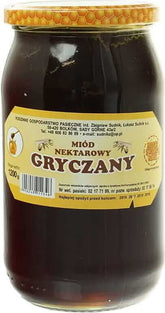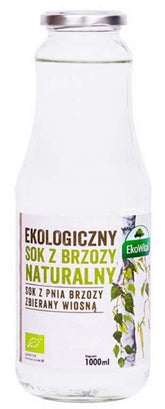What are saponins and what properties do they have?
Saponins are chemical compounds of vegetable origin that are classified as glycosides, which are sugar derivatives. The name saponins comes from the Latin sapo , which means soap. It binds with the foaming properties of saponins. Saponins have anti-inflammatory, diuretic and also help speed up the digestion of fats. They have a wide range of uses in medicine, but it is also important to know that some of them have strong toxic properties.
Where will we find saponins?
Their main source is all plants such as:
Adzuki beans have been cultivated in Asia for several thousand years. It is most commonly eaten in Japan and China. The taste of this Asian delicacy is reminiscent of the well-known American red beans, with a strong and distinctive nutty-sweet aftertaste. Red soy beans, however, are certainly less calorific than traditional red beans and are slightly sweeter; the Japanese use them to make unusual desserts. Its popularity is due not only to its delicious taste—adzuki beans are also very healthy.
- Soapbox medical
- digitalis
- aloe
- liquorice
- Marigold medicinally
- ginseng
- Horse chestnut common
- Vine
- soy
- olives
- Starlight common
- a bundle of American
- Foxtail rice
Use in cosmetics
Saponins are used extensively in cosmetics, particularly because of their great foaming properties. We find them primarily in soaps, shower gels, and bubble baths. They are used in cosmetics for make-up remover, tonics, and facial wash gels. Saponins are also found in detergents and liquids. But that's not all - because saponins have anti-inflammatory effects, reduce swelling, and improve blood flow and tissue oxygenation, they are used in face creams and body lotions. They also reduce surface tension, which is beneficial for our skin. Their permeability increases, which is why nutritionally necessary substances are better absorbed and assimilated.
Saponins Steroids - Use in Medicine
Saponins are steroids that have very broad medical applications. Among other drugs, they have diuretic, expectorant, anti-inflammatory, antiviral, antibacterial, and antifungal properties. Saponins increase the amount of digestive juices and bile produced. By increasing the amount of protective mucus, they accelerate fat metabolism, and facilitate the absorption of food. They are used to synthesize sex hormones such as testosterone. Dietary supplements containing saponins are used in athletes and can affect testosterone levels in the body.
Saponins Steroids - possible consequences Page
Although saponins have many invaluable benefits, they can also cause serious side effects. When taking a sports supplement, caution should be exercised. The most dangerous side effect can be red blood cell hemolysis - a defect in blood cells that converts hemoglobin into plasma, which can contribute to anemia and even bone marrow damage. Saponins used in large quantities are toxic. They can damage heart muscle, respiratory system, and paralyze brain and nucleus. Since saponins are an ingredient in animal nutrition, they can pass through to meat or milk and indirectly to our food. However, in this case, they pose no threat to us.
THE PUBLISHER'S CHOICE
Dried plums 1 kg BIOGO
- £6.09
- £6.09
- Unit price
- / per
Dried White Mulberries 500 g ORGANIC
- £5.07
- £5.07
- Unit price
- / per
Almonds 1 kg BIOGO
- £10.16
- £10.16
- Unit price
- / per
Cranberries sweetened with apple juice organic 1 kg BIOGO
- £14.22
- £14.22
- Unit price
- / per
Dried dates 1 kg BIOGO
- £3.66
- £3.66
- Unit price
- / per
Unpeeled buckwheat groats 1 kg BIOGO
- £2.44
- £2.44
- Unit price
- / per
Walnuts 800 g BIOGO
- £7.52
- £7.52
- Unit price
- / per
Peeled sunflower seeds 1 kg BIOGO
- £2.64
- £2.64
- Unit price
- / per
PULLED ORGANIC SUNFLOWER SEEDS 1 KG BIOGO
- £3.86
- £3.86
- Unit price
- / per











































































































































